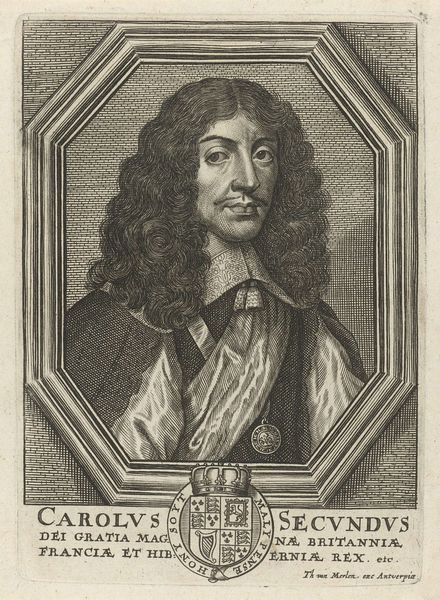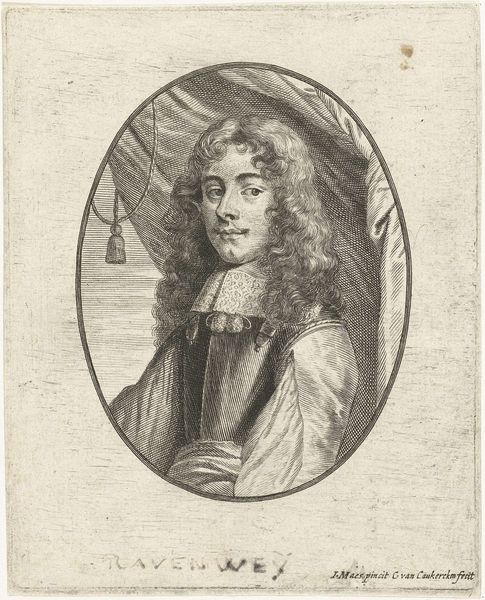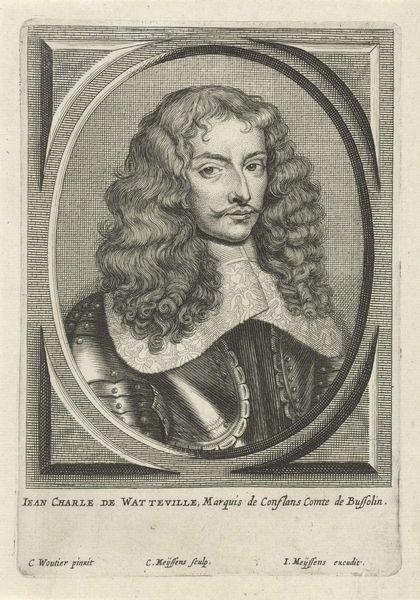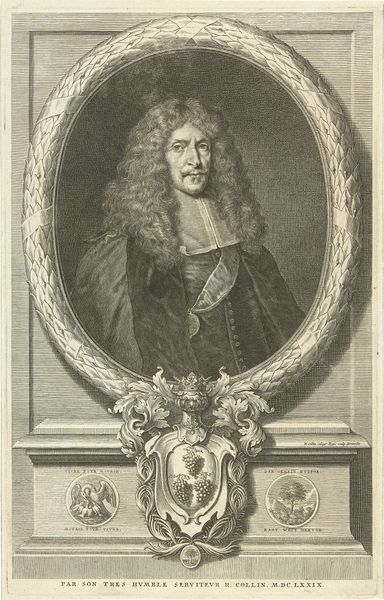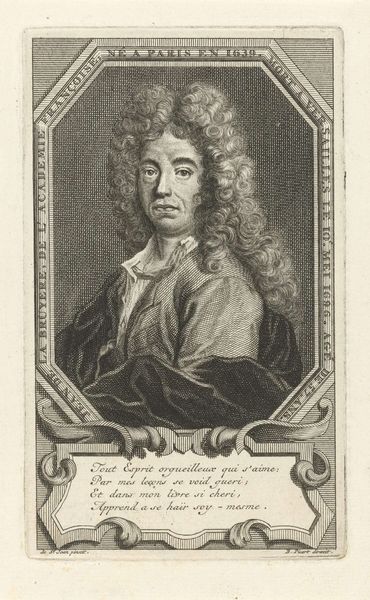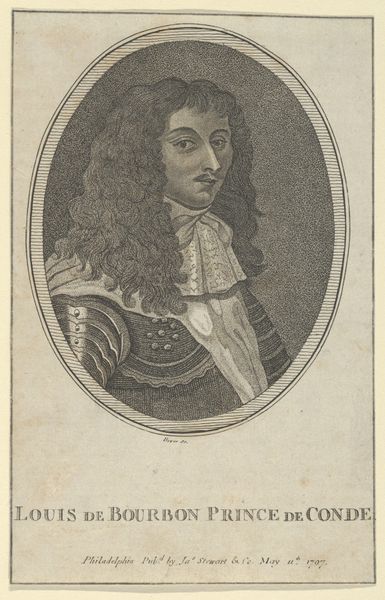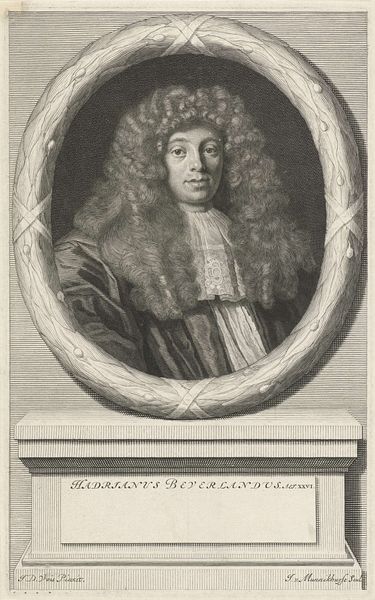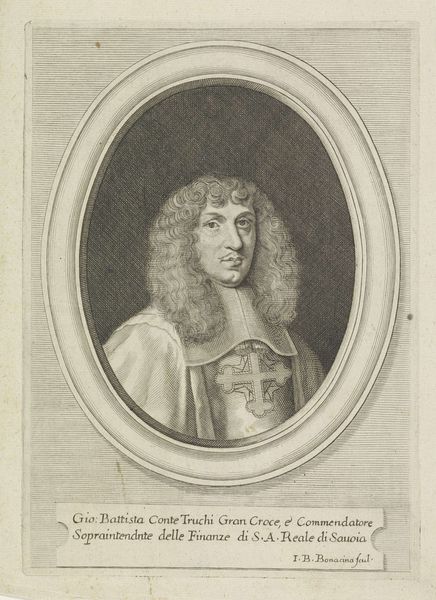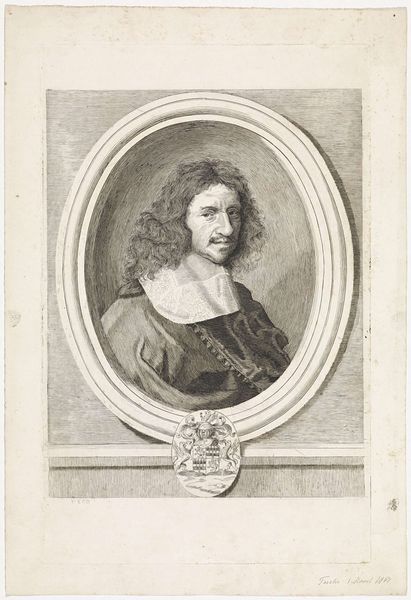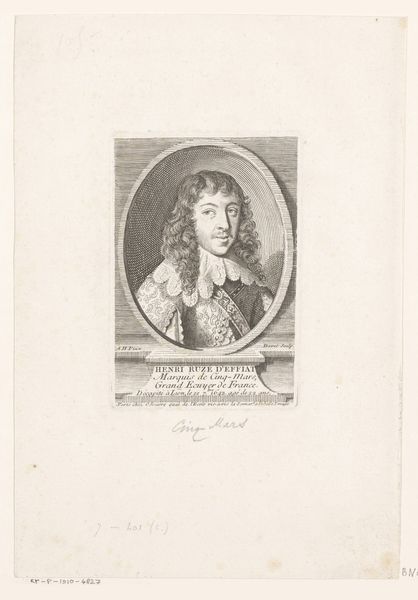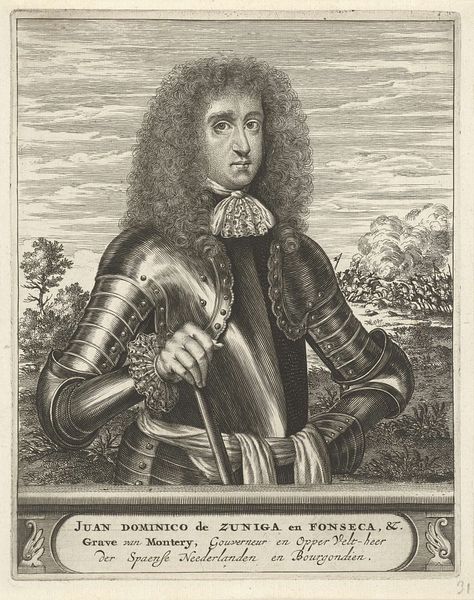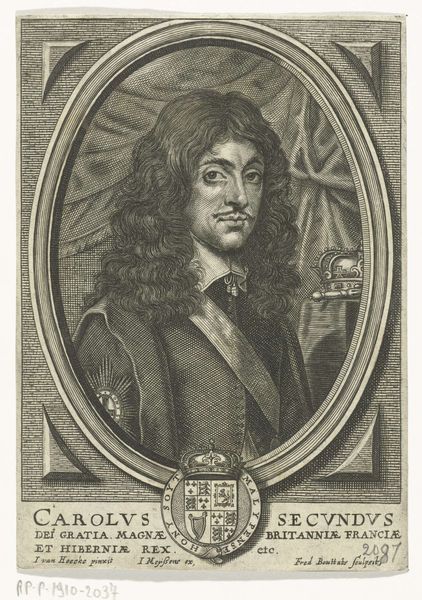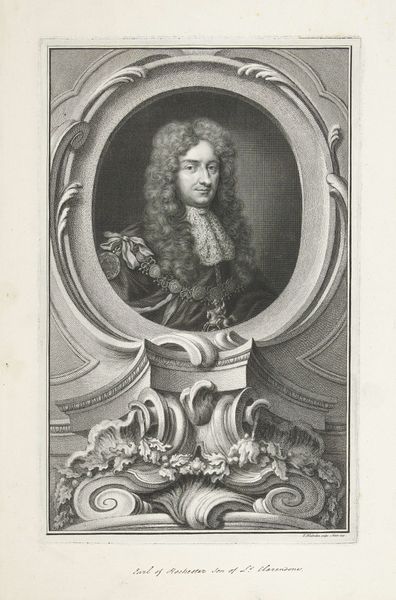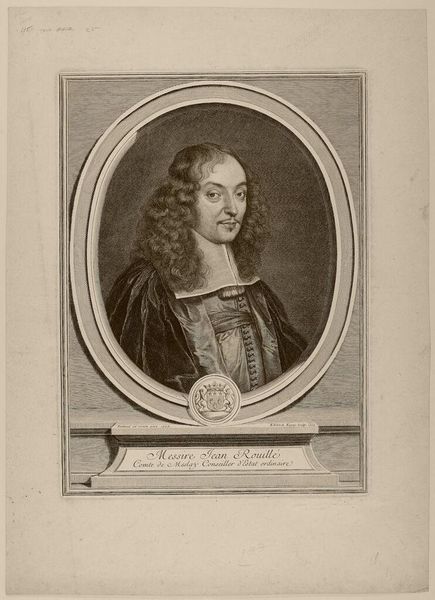
print, engraving
#
portrait
#
baroque
# print
#
old engraving style
#
history-painting
#
engraving
Dimensions: height 172 mm, width 125 mm
Copyright: Rijks Museum: Open Domain
Editor: This is "Portret van Henri de Lorraine" by Pieter de Jode II, made sometime between 1628 and 1670. It's an engraving and has a very formal feel, quite typical of the baroque portrait style. I am intrigued by the textures he creates using just line work. What strikes you most about this print? Curator: Well, as a materialist, my focus goes immediately to the 'how' and 'why' of its creation. Look at the precision and labor involved in engraving. It was a key technology in disseminating images and power. Consider who had access to these portraits, the intended audience, and the socio-economic status that facilitated both production and consumption. Editor: So, the act of making the print itself is as important as the man portrayed? Curator: Exactly! The lines, the paper, the ink – these aren’t neutral. They are commodities embedded in complex systems of production and trade. The print served to disseminate a carefully constructed image of power but also facilitated its reproduction. Each impression potentially placed it in more hands, beyond the traditional elite circles that oil paintings were meant to flatter. Who would have bought this? What messages were people extracting and sharing in society with prints like these? Editor: It is almost like early mass media! So, looking at the print this way shifts my attention away from just admiring it as art. Curator: Precisely! And toward understanding it as a material object circulating within a specific social context. By emphasizing production, the material components, and historical conditions of making, we get a clearer picture. Editor: That makes a lot of sense. It’s fascinating to consider all the different layers involved, especially when you consider accessibility through printmaking as a medium. Thanks, that's a great new lens. Curator: My pleasure. It always comes back to thinking about who had access to these images and the implications of widespread availability for social structure.
Comments
No comments
Be the first to comment and join the conversation on the ultimate creative platform.
